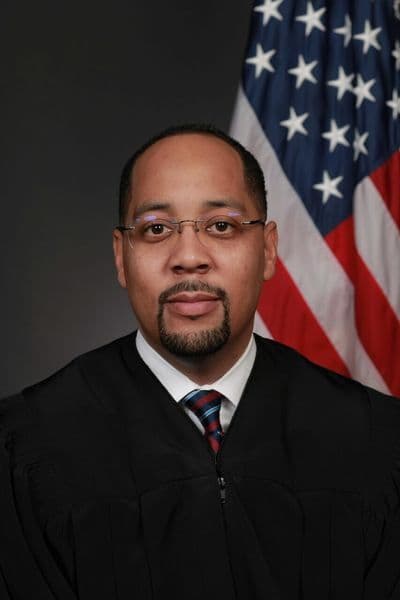
Law & Principles
Federal judge in Oklahoma gives anonymity to lawbreakers, not citizens
Ray Carter | May 27, 2025
In recent rulings, U.S. District Judge Bernard M. Jones of the Western District of Oklahoma has taken diametrically opposite stances regarding requests for plaintiffs in lawsuits to have their identities kept anonymous.
When a lawsuit was recently filed on behalf of illegal immigrants, Jones granted anonymity, saying the plaintiffs had reason to fear being arrested for their illegal activity if identified by name.
But when three politically conservative students sued Oklahoma State University, alleging the school’s policies infringed on their free-speech rights, Jones refused to grant anonymity, despite the students’ reasonable concerns about university retaliation if identified by name.
In 2023, the organization Speech First sued Oklahoma State University on behalf of three students who identified as political conservatives, arguing that OSU’s harassment, computer, and bias-incidents policies violated students’ First and Fourteenth Amendment rights.
Speech First’s complaint said OSU had “created a series of rules and regulations that deter, suppress, and punish speech about the political and social issues of the day. These restrictions disregard decades of precedent.”
OSU requested that the case be dismissed because Speech First did not identify the three students by name. Speech First and free-speech advocates noted that anonymity is allowed when a plaintiff could face retaliation from the entity being sued, arguing the university could easily target the three students if they were publicly identified.
Jones waved off those concerns and sided with OSU.
Judge Jones’ 2023 ruling in the OSU case was eventually overturned by the U.S. Court of Appeals for the Tenth Circuit, which sided with the students.
“Because Plaintiff has failed to name the members on behalf of whom it brings suit, it lacks standing to press the claims asserted here,” Jones wrote in an April 10, 2023, order. “Thus, the Court lacks jurisdiction to consider them, and Plaintiff’s case must be dismissed without prejudice.”
Jones took a very different approach when a lawsuit was filed challenging an Oklahoma state law, House Bill 4156, that imposes state criminal penalties on noncitizens who enter Oklahoma without legal authorization to enter the United States.
In that case, Padres Unidos De Tulsa v. Gentner Drummond, two anonymous illegal immigrants were plaintiffs in the case.
The defendants—Attorney General Gentner Drummond, Oklahoma Department of Public Safety Commissioner Tim Tipton, Oklahoma County District Attorney Vicki Behenna, and Tulsa County District Attorney Steve Kunzweiler—said the use of pseudonyms was designed to deter enforcement of federal immigration law, arguing that by “seeking leave to cloak themselves with pseudonyms” the two anonymous illegal-immigrant plaintiffs were “attempting to enlist a federal court as the enabler of their admitted and ongoing lawbreaking.”
Despite having previously rejected requests for anonymity for OSU student plaintiffs facing potential retaliation, Jones took the opposite stance in the immigration case and granted anonymity to illegal immigrants suing the state of Oklahoma.
In a May 20, 2025, order, Jones wrote that the two illegal immigrants “should not be forced to choose between challenging H.B. 4156 and exposing themselves to federal authorities. To require them to litigate this matter under their real names would effectively place a target on their backs simply for seeking judicial review of a state law they claim—and this Court once found—is likely preempted.”
Jones also granted class status to the lawsuit, allowing the plaintiffs’ lawyers to represent all illegal immigrants in Oklahoma as a class.
Notably, Jones’ 2023 ruling in the OSU case was eventually overturned by the U.S. Court of Appeals for the Tenth Circuit, which sided with the students.
“Longstanding and well-established doctrine in the federal courts establishes that anonymous persons may have standing to bring claims,” stated the order.
After Jones ruled the lawsuit could not proceed without the students’ identities being made public, several national organizations representing a wide political spectrum weighed in, filing amicus briefs in support of preserving the anonymity of the OSU students and allowing the case to proceed.
If courts required Speech First to identify the individual students it represents, the Chamber of Commerce and American Bankers Association said that requirement “threatens to chill core First Amendment speech by exposing associations’ members—such as the businesses the Chamber represents—to government harassment or retaliation.”
The Young America’s Foundation (YAF) and the Manhattan Institute noted that OSU was following in the steps of the segregationist state government of Alabama in the 1950s, which tried to force the NAACP to disclose the names of its members when the group was working to overturn racial-segregation laws.
OSU objected to acceptance of the amicus curiae briefs, calling them “burdensome to OSU, but even more burdensome on the Court,” and declaring them “redundant and repetitive” and “superfluous.”
By April 2024, Speech First secured a decisive settlement in Speech First v. Shrum et al. Under the settlement agreement, OSU officials agreed to make significant policy changes on campus and to pay attorneys’ fees to Speech First.
[Photo credit: University of Notre Dame]

Ray Carter
Director, Center for Independent Journalism
Ray Carter is the director of OCPA’s Center for Independent Journalism. He has two decades of experience in journalism and communications. He previously served as senior Capitol reporter for The Journal Record, media director for the Oklahoma House of Representatives, and chief editorial writer at The Oklahoman. As a reporter for The Journal Record, Carter received 12 Carl Rogan Awards in four years—including awards for investigative reporting, general news reporting, feature writing, spot news reporting, business reporting, and sports reporting. While at The Oklahoman, he was the recipient of several awards, including first place in the editorial writing category of the Associated Press/Oklahoma News Executives Carl Rogan Memorial News Excellence Competition for an editorial on the history of racism in the Oklahoma legislature.